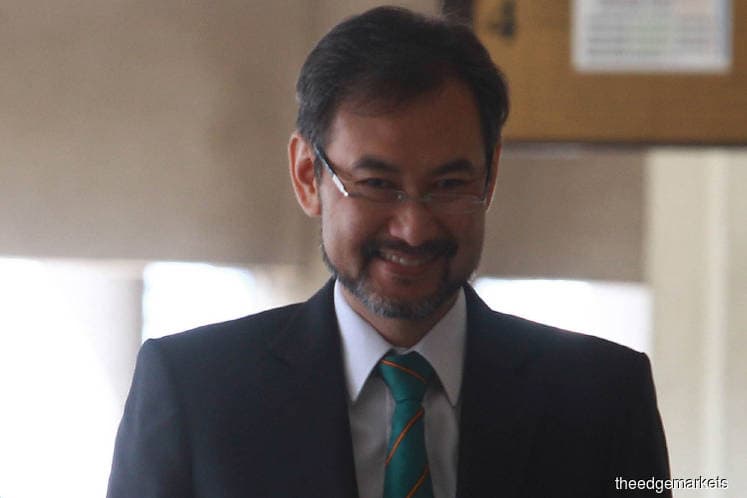
This article first appeared in The Edge Malaysia Weekly on November 11, 2019 - November 17, 2019
SO unhelpful and uncooperative were PetroSaudi International co-founder Tarek Obaid and director Patrick Mahony in providing 1MDB with any information on its maiden US$1 billion investment in September 2009 in a joint venture that the auditors, Ernst & Young, were unable to sign off on 1MDB’s 2010 accounts, 1MDB’s former CEO Datuk Shahrol Azral Ibrahim Halmi told the High Court last week.
In March 2010, as Ernst & Young attempted to complete the maiden audit of 1MDB, it pressured the strategic development company for more information or details of projects wherein it had invested US$1 billion with PSI.
“1MDB needed to have the information about the joint-venture company. This was so that our auditors would be satisfied the value of the joint-venture company was as per claimed or stated by PSI,” Shahrol said to questions from lead defence counsel Tan Sri Muhammad Shafee Abdullah.
As the information was not forthcoming, he said he instructed 1MDB executive director Casey Tang to meet Obaid and Mahony in London, but the meeting proved unsuccessful. “I also reached out to Low Taek Jho for help in getting the needed details, but nothing came out of it. In the end, we did not get any information and Ernst & Young refused to sign the audit,” Shahrol said.
Of the US$1 billion, 1MDB had paid out US$300 million to Petrosaudi Holdings (Cayman) Ltd and the balance to Good Star Ltd.
Shahrol had previously said he only knew in 2015 that Good Star, which had been disguised as a company affiliated to PetroSaudi, was in fact controlled by Low, better known as Jho Low.
Previously, the former chairman of the 1MDB board of directors, Tan Sri Mohd Bakke Salleh, had also questioned why the US$700 million had been transferred to Good Star instead of PetroSaudi. Subsequently, Bakke resigned in early 2010.
Shahrol said as the joint venture did not meet 1MDB’s expectations, in early 2010, PSI offered to convert 1MDB’s 40% stake in 1MDB-PetroSaudi Ltd, the joint-venture company (JVCo), into an Islamic loan or murabahah notes at a face value of US$1.2 billion.
The “new deal”, it was agreed, would solve the problem with the auditors. However, it was only signed on March 31, 2010, by which time it was ostensibly too late for the 2010 accounts.
Shahrol denied Shafee’s suggestion that the new deal was to hide Ernst &Young’s query over where the US$1 billion investment had gone to, from former prime minister Datuk Seri Najib Razak.
He claimed that Najib had been told by Low that Ernst & Young did not want to sign off on the 2010 accounts as the financial reporting standards were not met. “This was told to Najib as the chairman of the board of advisers verbally and not in writing. That was what Jho Low had informed me.”
Hearing before judge Collin Lawrence Sequerah continues on Monday.
Save by subscribing to us for your print and/or digital copy.
P/S: The Edge is also available on Apple's AppStore and Androids' Google Play.